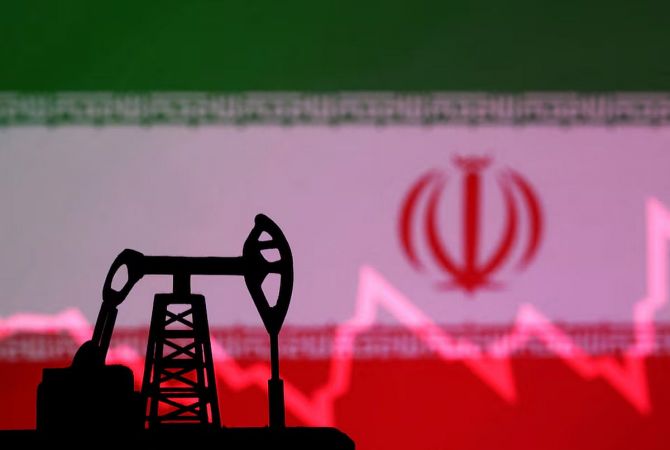Top government officials in New Delhi have started discussions with stakeholders ranging from shipping and container companies to export promotion councils to understand the impact of the Iran-Israel tensions and plan ahead.

Inter-ministerial talks are also being lined up amid the crisis situation in West Asia, sources confirmed.
While the crude flows are not directly under any threat, elevated oil prices remain a concern, according to officials.
Commerce secretary Sunil Barthwal told reporters at a press conference on Monday that the government is monitoring the situation and will take appropriate action or remedial measures.
“Whenever such conflicts occur, we start monitoring trade, conduct stakeholder consultation. Policy interventions will come when we understand what issues traders are facing,” Barthwal said.
He pointed out that the government has been dealing with regional conflicts over the last couple of years and has devised a strategy to diversify exports to different regions.
Two days after Iran’s drone and missile attacks on Israel, finance ministry officials said they were taking stock of the situation and staying in touch with concerned ministries on the issue.
New Delhi-based think tank Global Trade Research Initiative (GTRI) said that India's trade problems due to shipping disruption in the Red Sea could get worse because of the new conflict between Iran and Israel.
While the hostilities between Israel and Iran are not expected to affect oil flows directly, the government remains concerned about the cascading impact on global prices.
"We have always maintained that prices crossing $100 per barrel would lead to a very difficult situation.
"There is still enough buffer before that is reached. But the impact of successive crises in West Asia may lead to oil prices remaining elevated for a period much longer than we had expected earlier," a top Petroleum and Natural Gas Ministry official said.
The GTRI report said that this conflict might not affect petrol prices in India.
“The conflict makes the situation in West Asia very unstable, which could force projects like the India Middle East Corridor (IMEC) trade corridor to remain on paper for a long time,” the report said, adding that India’s trade with Iran and Israel are at higher risk due to potential escalations and disruptions in maritime security affecting Red Sea shipping routes.
Rice exporters, for instance, are a worried lot and are holding an internal meeting on Tuesday to discuss the transit issues in the Red Sea among other challenges, in light of the ongoing conflict, according to sources.
"The challenge is with the immediate neighborhood hosting several shipping routes. Freight charges for transporting crude already remain elevated, and further increase in shipping rates will negatively impact procurement by oil marketing companies.
"We are monitoring the situation," another oil ministry official said.
In 2023, India's trade with Iran included merchandise exports worth $1.7 billion and imports of $672 million.
Key exports from India to Iran were rice at $1.03 billion and organic chemicals $113 million.
The wars in Ukraine and Gaza, and subsequent threats by Iran-backed Houthi militants to shipping in the Red Sea and Gulf of Aden have kept tensions elevated and the oil trade volatile.
Brent crude prices slid back below the crucial $90 per barrel level on Monday, ending at $89.77. Brent prices had risen to a six-month high of $92.09 per barrel last week.
Officials, however, say the latest flashpoint in West Asia does not threaten India's import channels directly as it does not import crude oil from Iran, given difficulties in payments to the heavily sanctioned Islamic regime in Tehran.
Iran was the third-largest source of crude oil for India till 2018-19, when imports had topped at $12.1 billion.
After more than a year of securing major shipments of Russian crude, India is increasingly looking to re-establish supplies from its traditional partners in West Asia. All crude delivered from these nations travel via the Persian Gulf and Gulf of Oman, often through Iranian economic waters.
As of January, Iraq and Saudi Arabia were the second and third-largest sources of crude for India, according to estimates made by London-based commodity data analytics provider Vortexa, which tracks ship movements to estimate imports.
The share of crude coming from these nations has risen over the past few months.
Weighing options
- Officials say crude flows are not directly under any threat and elevated oil prices remain a concern
- Finance ministry officials said they were taking stock of the situation and staying in touch with ministries concerned on the issue
- According to GTRI, India's problems due to shipping disruption in the Red Sea could get worse
- Rice exporters holding an internal meeting on Tuesday to discuss the transit issues in the Red Sea
(Inputs from Sanjeeb Mukherjee)












 © 2025
© 2025